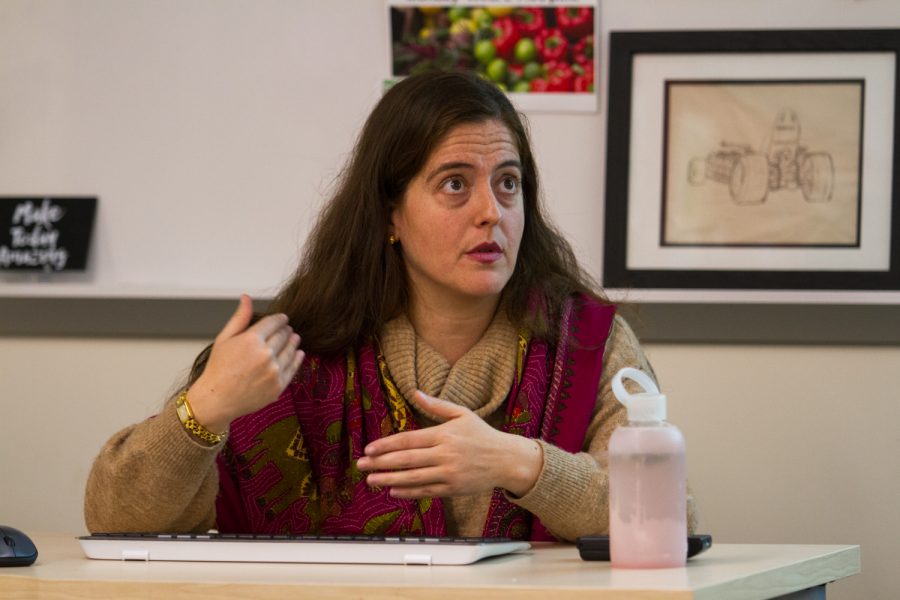A global studies professor who preferred to remain unidentified warned students about the free reign the government grants private contractors at her Tuesday talk in City College’s Equity Center.
Her discussion, titled “How Tech Companies Are Making Money From Government Surveillance,” focused on Amazon, Microsoft and Google’s ties with the government and its limited oversight when it comes to their valuable data access.
“In a world where there are light bulbs and street lamps that record video and audio, private [government] contractors have way too much power and… no oversight,” the professor said.
The trend of hiring private companies has continued to this day and has come to include household names like Amazon.
“The federal government doesn’t have their own center to develop technology… they outsource it,” she said.
She explained how Amazon has developed Amazon Rekognition, an “AWS Artificial Intelligence service that allows software developers to quickly and easily build applications that analyze images and recognize faces object and scenes.”
It’s similar to Facebook’s face recognition technology. If Facebook’s algorithm recognizes a friend in your photo, it will ask you to verify it is them. If it doesn’t recognize a face in a photo, it allows you tag your friend which teaches the AI to attribute that face with your friend in future photos.
Instead of recognizing the faces of friends, Amazon Rekognition identifies terrorists. The professor said that different governmental groups want to implement this technology into drones and it’s only a matter of time before it’s adopted by local police and used as border and civilian surveillance.
Amazon currently holds the highest number of private contracts with the government. The profesor told students that Amazon lobbied the government to adopt a cloud-based storage, meaning that Amazon has access to much more data than an individual’s favorite brand of shoes. Through the cloud-based storage, they also have access to private medical and financial records.
“We can’t turn a blind eye to this technology,” student Shane Hernandez said from the audience. “Other countries could do it and end up surpassing the United States.”
The talk concluded by displaying letters sent out by Amazon and Microsoft regarding their ethics.
“We learn from history, and we understand how IBM’s systems were employed in the 1940s to help Hitler,” Amazon’s letter read. “We should not be in the business of supporting those who monitor and oppress marginalized populations.”
“We don’t see a direct impact from the technology yet,” the professor said. “We have a moral responsibility for protecting [our data] and those who are marginalized.”
Editor’s Note:
All mentions of the name of the speaker have been removed to protect their identity.









![Milton Alejandro Lopez Plascencia holds a flag showcasing the United States and Mexico on Feb. 7 in Santa Barbara, Calif. “It’s heartbreaking to see what is happening all across the country,” Lopez Plascencia said. “I [want] my voice to be heard by the community.”](https://www.thechannels.org/wp-content/uploads/2025/05/MGSImmigration-1-1200x800.jpg)




